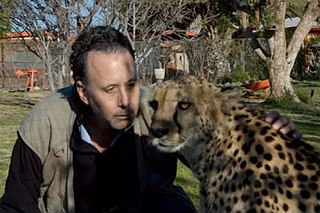A Quote by Michael Tobias
Poetry, song, stories, art, our reverence for nature, are key to our survival as a species, and to the survival of all species, I believe. You can't always extract such emphatic hunches and activist stances from a scientific maxim or mathematical axiom.
Related Quotes
I personally believe the role of poets as poets (which is something different from our obligations as citizens, community members, humans) is to write poems. I believe this because I am quite sure poetry can do something no other form or writing, or human activity, can, at least not in such a powerful and distilled and undeniable way. And that we need this type of thinking for our survival as individuals and as a species.
This notion that man can, and should, have absolute dominion over the "chaotic" powers of nature and woman...is what ultimately lies behind man's famous "conquest of nature" - a conquest that is today puncturing holes in the earth's ozone layer, destroying our forests, polluting our air and water, and increasingly threatening the welfare, and even survival, of thousands of living species, including our own.
A species has to become pretty intellectually advanced in order to grasp the concept of death in the abstract, and to dream up the idea of immortality. Long before that (in evolutionary terms) all species with brains have the survival instinct in some form. So, I am just saying that there are many existent proofs of species that have one, but not the other.
There are millions of different species of animals and plants on earth--possibly as many as forty million. But somewhere between five and fifty BILLION species have existed at one time or another. Thus, only about one in a thousand species is still alive--a truly lousy survival record: 99.9 percent failure!



































